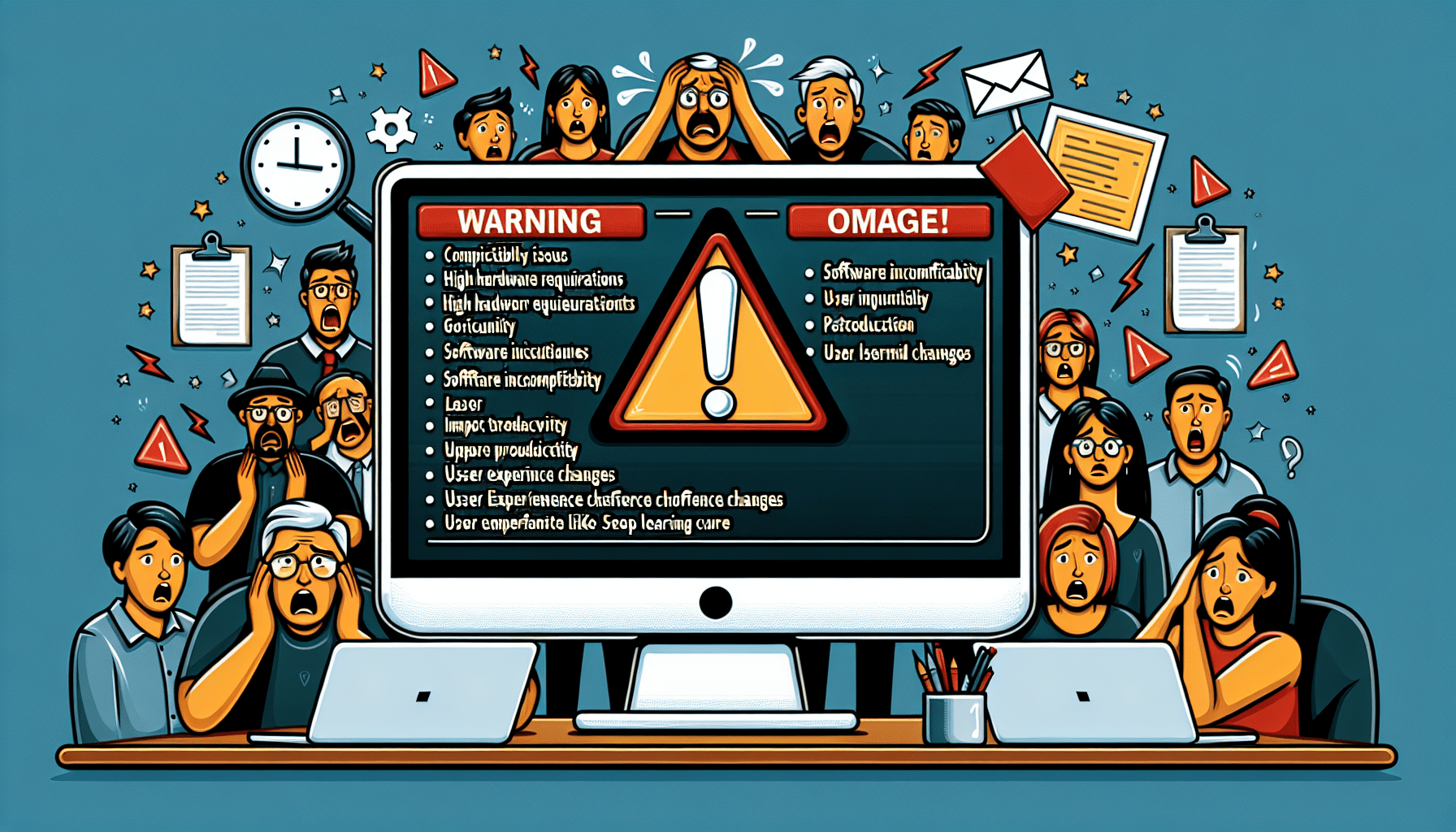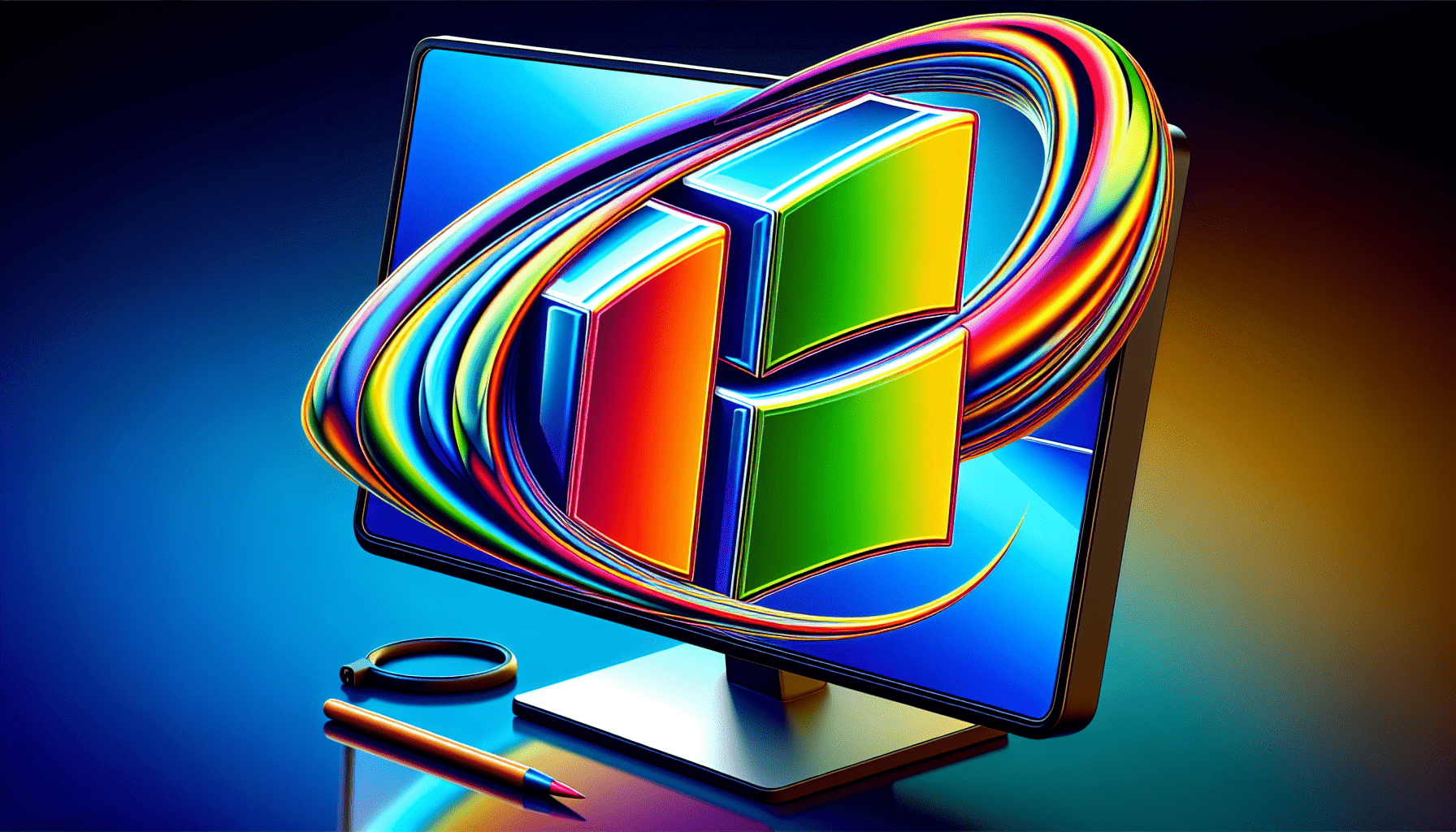







Have you ever experienced the frustration of a sudden laptop crash or freeze? It’s a common annoyance that can disrupt your work or leisure time. In this article, we will explore the various factors that can lead to these unexpected computer hiccups. From overheating to software conflicts, we will unravel the mysteries behind these annoying crashes and freezes, helping you understand and troubleshoot the root causes. So, if you’re tired of losing progress or getting stuck in the middle of an important task, read on to discover the reasons behind these random laptop crashes or freezes.

Hardware Issues
Faulty RAM
One common hardware issue that can cause random laptop crashes or freezes is faulty RAM. RAM, or random access memory, is responsible for temporarily storing data that the computer needs to access quickly. If the RAM is faulty, it can lead to errors and crashes. Symptoms of faulty RAM include random crashes, blue screen errors, and freezes. To fix this issue, you may need to replace the faulty RAM stick with a new one.
Overheating
Another hardware issue that can cause laptop crashes or freezes is overheating. Laptops are compact devices that generate a significant amount of heat during operation. If the cooling system, including the fans and heat sinks, become clogged with dust or fail to function properly, the laptop may overheat. Overheating can lead to the system becoming unstable and crashing. To prevent overheating, make sure to clean the cooling system regularly and use the laptop on a flat, hard surface to allow proper airflow.
Hard Drive Failure
Hard drive failure can also result in random laptop crashes or freezes. The hard drive is where all the data is stored, including the operating system and applications. If the hard drive develops bad sectors, becomes corrupted, or fails completely, it can lead to crashes and freezes. Warning signs of hard drive failure include slow performance, frequent errors, and strange noises coming from the laptop. To resolve this issue, you may need to replace the failing hard drive and restore your data from a backup.
Software Problems
Outdated Operating System
Using an outdated operating system can cause random laptop crashes or freezes. As software and hardware evolve, operating systems release updates to improve performance, security, and stability. If you fail to install these updates, outdated software compatibility issues can arise, leading to crashes and freezes. To address this problem, regularly check for operating system updates and install them promptly.
Corrupted System Files
Corrupted system files are another common software problem that can cause laptop crashes or freezes. System files are critical files within the operating system that help it function properly. If these files become corrupted due to malware infections, power interruptions, or system errors, it can result in crashes and freezes. Running a system scan using the built-in utilities or third-party software can help identify and fix corrupted system files.
Incompatible Device Drivers
Incompatible or outdated device drivers can also contribute to laptop crashes or freezes. Device drivers are software that allows the operating system to communicate with hardware components. If the drivers are not up to date or incompatible with the operating system, it can lead to system instability and crashes. To resolve this issue, check for driver updates from the manufacturer’s website or use automatic driver updating tools.
Malware Infections
Malware infections can significantly impact the performance and stability of a laptop, often causing crashes or freezes. Malware refers to malicious software that can infiltrate the system through various means and cause harm. It can disrupt system processes, corrupt files, and steal sensitive information. To eradicate malware, it is crucial to use reliable antivirus software, regularly update it, and perform full system scans.
Insufficient System Resources
Low RAM
Insufficient system resources, such as low RAM, can lead to laptop crashes or freezes. When the RAM becomes overloaded with running programs and tasks, it can cause the system to become unresponsive and crash. If your laptop has low RAM, consider upgrading it to a higher capacity to handle the demands of modern applications effectively.
Low Disk Space
Low disk space is another factor that can lead to laptop crashes or freezes. When the disk space is running out, it can affect the performance of the operating system and applications. Insufficient space can prevent files from being written correctly, leading to crashes or freezes. To address this issue, regularly clean up unnecessary files, uninstall unused applications, and consider upgrading to a larger storage capacity if necessary.
Power Issues
Power Supply Problems
Power supply problems can cause laptop crashes or freezes as well. If the power supply unit (PSU) is faulty, it can fail to provide stable and adequate power to the laptop components. This can result in sudden shutdowns or system instability, leading to crashes or freezes. If you suspect a power supply problem, consider getting it tested or replaced by a professional.
Faulty Battery
A faulty battery can also contribute to laptop crashes or freezes. If the battery is not functioning correctly, it may fail to provide a consistent power supply to the laptop, leading to unexpected shutdowns or system instability. To address this issue, consider replacing the faulty battery with a new one from the manufacturer.
Inadequate Power Settings
Inadequate power settings can cause laptop crashes or freezes, especially when the system is not configured to handle high-performance tasks. If the power settings are set to energy-saving modes, it can limit the laptop’s resources and cause instability. To prevent this, ensure that the power settings are appropriately configured, especially when running resource-intensive applications.

External Factors
Hardware or Software Conflicts
Hardware or software conflicts can also result in random laptop crashes or freezes. When two or more components or software programs clash with each other, they can cause system instability. This can occur due to incompatible hardware devices or conflicting software configurations. To troubleshoot this issue, try disconnecting or disabling any recently added hardware or software and see if the crashes or freezes persist.
Incompatible or Faulty External Devices
Using incompatible or faulty external devices can also lead to laptop crashes or freezes. When a laptop connects to external devices such as printers, scanners, or USB drives, compatibility issues can arise. Faulty or malfunctioning external devices can also cause system instability. To resolve this issue, ensure that the external devices are compatible with your laptop and functioning correctly.
In conclusion, random laptop crashes or freezes can be caused by various hardware and software issues, insufficient system resources, power issues, and external factors. By identifying the specific cause of the problem and taking appropriate measures, such as replacing faulty hardware, updating software, managing system resources, resolving power-related issues, and troubleshooting external factors, you can ensure a stable and reliable laptop computing experience.




